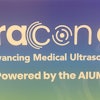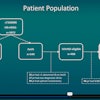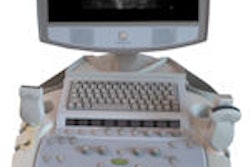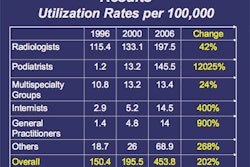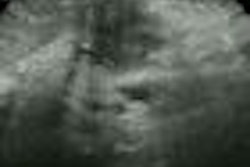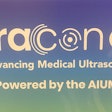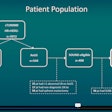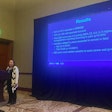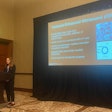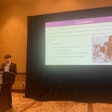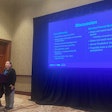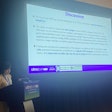A study presented at this week's American College of Cardiology (ACC) meeting in Orlando, FL, found that critically ill patients who received contrast-enhanced transthoracic echocardiography (TTE) were actually less likely to have short-term mortality than those who had noncontrast TTE studies.
The study is likely to renew the debate over the safety of echo contrast agents, which in the U.S. must carry a black box warning on their packaging due to reports of patient deaths several years ago. Some contrast advocates believe the U.S. Food and Drug Administration (FDA) overreacted in requiring the warning and have lobbied for either its removal or for its language to be relaxed.
The study, presented as a poster at the ACC meeting, specifically addressed critically ill patients, a point of concern for the FDA. Compared with noncontrast TTE (nTTE), contrast TTE (cTTE) was associated with higher short-term survival in this population, which included patients requiring mechanical ventilation, wrote a research team led by Dr. Michael Main of Saint Luke's Mid America Heart Institute in Kansas City, MO.
The study utilized the Premier Perspective clinical database to retrospectively evaluate a total of 145,882 clinically matched inpatients who had received resting TTE between January 1, 2002, and October 31, 2007. Of these, 39,189 were defined as critically ill and in the intensive care unit when the echocardiography was performed.
nTTE was performed on 19,871 of these patients, while cTTE was provided to 19,318. Of the cTTE group, 78% received the Definity perflutren lipid microsphere contrast agent (Lantheus Medical Imaging, North Billerica, MA) and 22% were given the Optison perflutren protein-type A microsphere contrast agent (GE Healthcare, Chalfont St. Giles, U.K.).
There were 592 deaths (2.98%) in the short-term period (48 hours) following nTTE, compared with 445 (2.30%) for patients who received cTTE.
"Multivariate logistic regression revealed that short-term mortality risk among critically ill patients undergoing transthoracic echocardiography with a contrast agent was 26% less than patients undergoing echocardiography without a contrast agent," they wrote.
The study team also looked at the short-term mortality records for a subset of 12,572 patients on mechanical ventilation. Of these patients, 6,250 underwent nTTE procedures and 6,322 received cTTE.
There were 382 deaths (6.11%) for nTTE patients, compared with 290 deaths (4.59%) for the cTTE group. "Short-term mortality rates for patients requiring mechanical ventilation were also significantly lower for contrast TTE than for noncontrast TTE," the authors wrote.
The researchers acknowledged some limitations in their study, including the use of hospital claims data rather than information abstracted from patient chart review. In addition, they did not develop comparative data on mortality based on lipid or type A protein-coated perflutren microsphere imaging agents due to the small sample size of the latter agent.
The study does demonstrate conclusively, however, that there's no increased risk of using echo contrast in critically ill patients, Main said.
"That is the patient population that the FDA was most concerned with," Main told AuntMinnie.com. "And when you couple this safety data with some of the efficacy data that was recently published, I think you're going to see, really, a sea change with how people view ultrasound contrast agents in cardiology."
The ACC poster outlines the preliminary results of an FDA-mandated study to define whether there was any increased mortality in patients receiving contrast-enhanced echocardiography compared with those who received unenhanced echocardiography, Main said.
By Erik L. Ridley
AuntMinnie.com staff writer
March 31, 2009
Related Reading
Study: Echo with Definity contrast aids in cardiac diagnosis, February 24, 2009
JACC study shows no additional risk from echo contrast agents, January 8, 2009
Lantheus touts positive Definity results, December 16, 2008
Flash-contrast echocardiography safe for assessing myocardial ischemia, December 4, 2008
ASE issues echocardiography contrast consensus statement, November 11, 2008
Copyright © 2009 AuntMinnie.com


